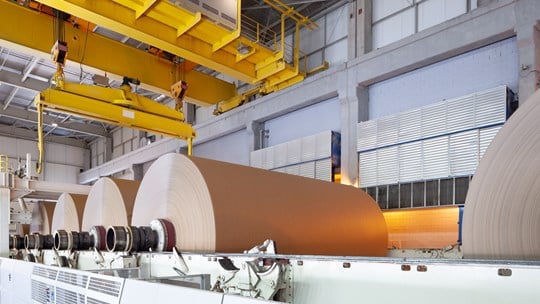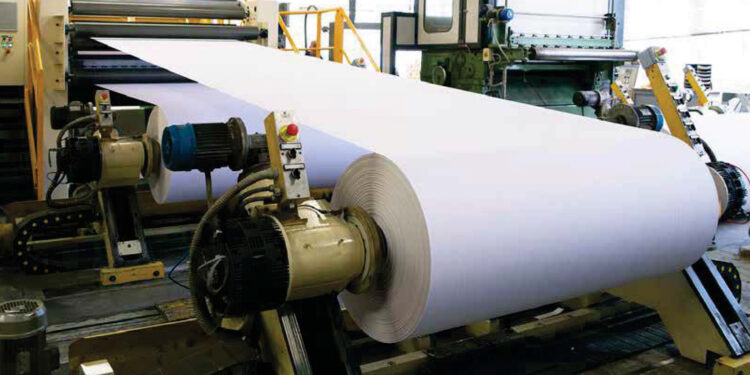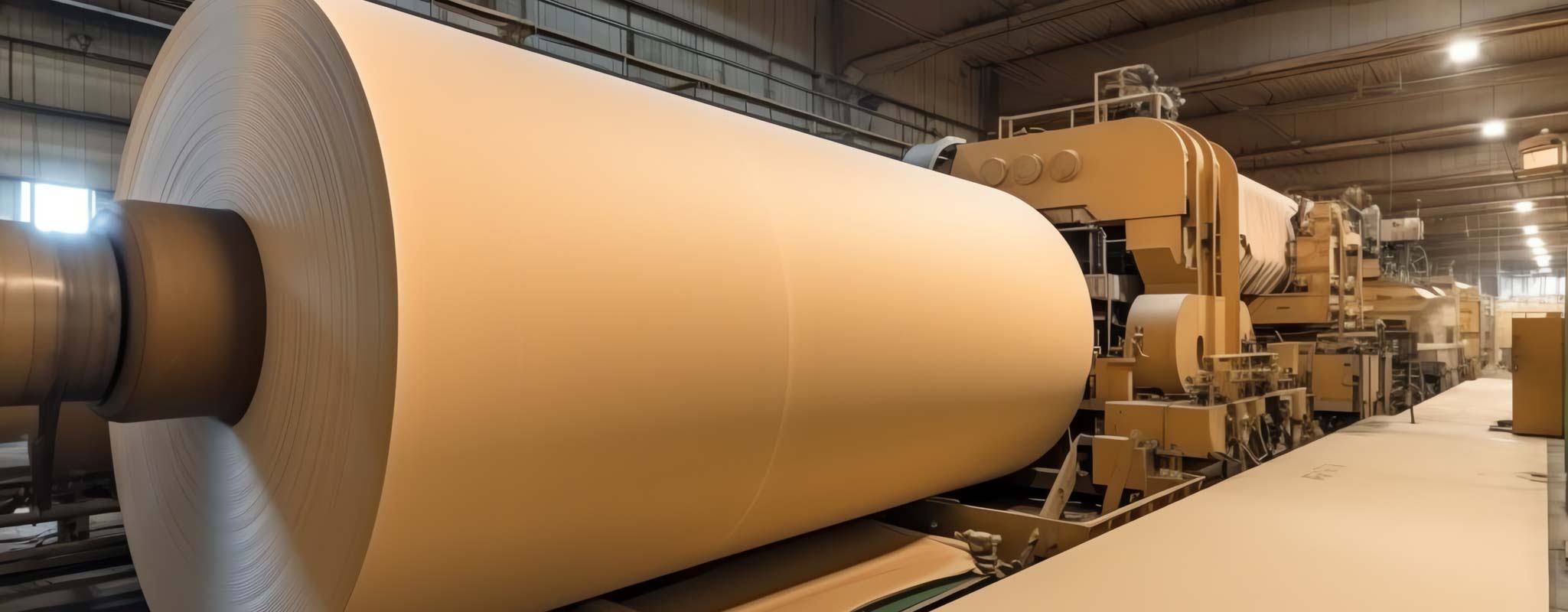“The Pulp & Paper Industry in Egypt : Current Trends, Challenges, and Future Opportunities”


Egypt Pulp and Paper Industry
Egypt Pulp and Paper Industry : An In-Depth Analysis
The cellulose and paper industries are the foundation of the Egyptian industrial sector and play a decisive role in the economic development of the country. This sector includes packaging, printing, and paper, cardboard, and pasta used for various industrial purposes. With the growing demand for paper products at domestic and international levels, recent celluloses and Egyptian paper industries have become important witnesses. This document examines the historical background, current status, problems, and opportunities of the Egyptian sector and the paper section.
Historical Overview
The roots of Egypt’s pulp and paper industry date back to the early 20th century, when small paper mills were established to serve local demand. Over time, the sector expanded with government support, particularly in the mid-20th century when industrialization was a priority. One of the key milestones in the history of the paper industry was the establishment of the Misr Paper Company in the 1950s, which played a key role in the modernization of the industry. In the second half of the 20th century, the Egyptian paper industry began to integrate advanced technologies and adopt global best practices to improve efficiency and quality. Egypt Pulp and Paper Industry .
Key Players in Egypt’s Pulp and Paper Industry
The Egyptian pulp and paper market is made up of a mix of state-owned enterprises, private firms and international investors. The main players are :
Misr Edfu Paper: one of the leading producers of cardboard and packaging materials. Al Bardi Paper Mill: Specializes in tissue paper production.
Raya Paper and Packaging: Focuses on eco-friendly and sustainable paper products. National Paper Company: Known for producing a wide variety of writing and printing papers.
While these companies dominate the national market, there are also smaller players present, which contributes to the diversity of the industry.
Egypt Paper Market

Production Capacities and Technologies
Egyptian paper mills are equipped with advanced machinery and technology, enabling them to meet diverse market demands. The industry’s production capacity is divided into the following categories:
Printing and writing paper: Egypt produces around 300,000 tonnes per year to meet domestic demand from schools, offices and publishing companies. Packaging Paper: With the growth of e-commerce and exports, the demand for corrugated and kraft paper has skyrocketed. Annual production exceeds 400,000 tons. Tissue Paper: The growth in consumption of hygiene products has led to the growth of the tissue paper segment, which produces around 150,000 tonnes per year.
To improve efficiency and sustainability, new technologies such as automated paper machines, chemical pulping processes and recycling methods have been introduced. Egypt Pulp and Paper Industry .
Raw Materials and Supply Chain
The availability of raw materials is critical for the pulp and paper industry. Egypt relies on a mix of:
Virgin Pulp: Imported from global suppliers in North America, Europe, and Asia. Recycled Paper: Locally sourced through an extensive network of collection centers.
Non-Wood Fibers: Agricultural residues, such as wheat straw and bagasse, are increasingly utilized as eco-friendly alternatives to wood-based pulp. Efforts are currently underway to localize the production of raw materials to reduce dependency on imports and ensure cost stability. Egypt Pulp and Paper Industry .
Market Dynamics and Trends
The demand for paper products in Egypt is driven by several factors:
Population growth: With a population of over 100 million, consumption of paper products for education, packaging, and hygiene is booming.
Urbanization: Increasing urbanization is increasing the demand for consumer products, leading to growth in the packaging paper segment. Digital transformation: While digitalization is challenging the demand for traditional printing papers, it is also creating opportunities for specialty paper products such as thermal and label papers. Egypt Pulp and Paper Industry .
Sustainability: Consumers and businesses are switching to environmentally friendly and biodegradable paper products, encouraging the adoption of sustainable practices in production.
Export and Import Dynamics
Egypt’s strategic position as a gateway between Africa, Europe and the Middle East offers significant export opportunities. The country exports:
Corrugated paper: used in packaging and exported to neighboring countries. Paper Products: High quality napkin paper is exported to the Gulf Cooperation Council (GCC) countries. Specialty Paper: Limited quantities of writing and printing paper are exported to African markets. In terms of imports, Egypt depends on:
Raw materials: virgin pulp and specialty chemicals.
High-quality paper products: imported to meet niche markets such as luxury packaging.
Challenges Facing the Industry
Despite its potential for growth, Egypt’s pulp and paper industry faces several challenges.
Raw material costs: Dependence on imported virgin pulp leaves the industry vulnerable to price fluctuations in the international market.
Energy costs: Paper production is energy intensive, creating challenges amid rising energy prices. Environmental regulations: Stricter environmental laws are forcing companies to invest in sustainable technologies and waste management systems. Egypt Pulp and Paper Industry .
Competition: Imports of cheap paper products from Asia create stiff competition for local manufacturers.
Government Policies and Initiatives
The Egyptian government has taken measures to support the pulp and paper industry, including:
Subsidies and incentives: Tax breaks and subsidies for companies that invest in sustainable production methods.
Recycling programs: Increase collection and recycling of waste paper, reducing dependency on imported raw materials.
Export Promotion: Facilitating access to international markets through trade agreements and export subsidies.

Opportunities for Growth
The future of Egypt’s pulp and paper industry is promising, with several growth opportunities:
Sustainability: Investing in green technologies and non-wood pulp sources to meet the global demand for environmentally friendly products.
Digital Printing: Expanding production of specialty papers for digital printing. E-Commerce Rise: Leveraging the growth of e-commerce to increase packaging paper production.
Regional Expansion: Entering African and Middle Eastern markets with competitive pricing and quality products. Egypt Pulp and Paper Industry .
The pulp and paper industry is a vital part of the Egyptian economy, contributing significantly to employment, industrial growth and export earnings. Although challenges remain, such as raw material costs and environmental issues, the industry is positioning itself for long-term success by adopting innovative technologies and sustainable practices. With government support and strategic investments, Egypt has the potential to emerge as a regional leader in the pulp and paper sector, catering to both domestic and international markets.
Egypt’s pulp and paper industry is a key sector in the country’s manufacturing industry, contributing to both the economy and the environment. The industry includes the production of a variety of paper products, including wrapping paper, printing and writing paper, tissues and hygiene products . Market Overview The Egyptian paper and pulp market is driven by local demand from the education, industrial and commercial sectors.
The market is segmented into several categories, including packaging and wrapping, printing and writing, hygiene products and newsprint. The industry is evolving due to the growing demand for paper products due to the expansion of e-commerce and increasing online shopping. Egypt Pulp and Paper Industry .
Key Factors
One of the main factors driving the development of the Egyptian pulp and paper market is the increasing demand for packaging materials. With the growth of electronic commerce, there is an important need for corrugated packaging and paper products to ensure the safe and efficient delivery of products . In addition, growing attention to stability has led to a higher demand for transformed paper and cellulose into production. Consumers and companies are increasingly choosing alternatives that are friendly to plastic, which further strengthens the market.
Despite its growth, Egypt’s paper and pulp industry faces many challenges. Environmental issues such as deforestation and waste disposal are major challenges . The industry is also facing rising operating costs due to rising commodity prices and energy consumption. The shift to digital media and paperless communication is reducing demand for traditional paper products, making it difficult for businesses to maintain growth . Additionally, the recycling infrastructure in Egypt is underdeveloped, which hinders the industry\’s ability to fully leverage recycled materials.
Government Policies
The Egyptian government has implemented several initiatives to support the local manufacturing sector and reduce dependency on imports. These policies include environmental regulations that encourage sustainable practices in the paper industry, such as promoting recycling and reducing the environmental impact of pulp production . Egypt Pulp and Paper Industry .The government’s focus on sustainability is in line with global trends and helps the industry remain competitive.
The pulp and paper industry has a significant impact on the environment, mainly through air emissions, wastewater and solid waste. The industry is regulated by Egyptian laws on air emissions, wastewater, solid waste and hazardous materials . Egypt Pulp and Paper Industry . Companies must comply with these rules to minimize their impact on the environment. Efforts to reduce pollution include implementing cleaner production methods and taking pollution prevention measures . These advances have established paper as a strong alternative to plastics in many applications. Additionally, manufacturers are seeking new ways to improve the efficiency and reduce the environmental impact of their production processes.
The future of Egyptian pasta and paper industry seems to be promising because it is expected to be motivated to increase the demand for sustainable packaging solutions and expand electronic commercial transactions. The industry will continue to evolve and emphasize innovation and sustainability. Amid growing global concerns over plastic waste, the switch to environmentally friendly alternatives is likely to benefit the Egyptian market.
Egypt’s pulp and paper industry has grown significantly in recent decades and plays a key role in the country’s economy. The sector is involved in the production of different types of paper products from raw materials such as wood pulp, recycled paper and agricultural fibers. The Egyptian pulp and paper industry covers a wide range of activities including paper making, packaging, printing, tissue production etc. This report examines the current status, challenges, opportunities and future prospects of the Egyptian pulp and paper industry. Current Status of the Pulp and Paper Industry in Egypt Paper Market .
The pulp and paper industry in Egypt has been growing steadily, driven by the increasing demand for paper products, packaging, and tissues in various sectors such as education, healthcare, and consumer goods. Some of the key segments of this industry include:
Paper Production: Egypt produces various types of paper, including printing and writing paper, packaging paper, and tissue paper. Because the internal production capacity is limited, the country imports most of the raw materials, such as wooden pulpes and converted paper.

Packaging industry: Packaging segments are one of the rapidly growing in the Egyptian pasta and paper industries, mainly for the expansion of industries and drinks. Corrugated and kraft paper are commonly used for packaging, contributing significantly to the demand for paper products.
Napkins: The napkins market in Egypt is experiencing rapid growth due to increasing consumer awareness regarding hygiene and health. This segment includes products such as toilet paper, paper towels, and tissues. Egypt Paper Market .
Printing and writing papers: Although digitalization has impacted this segment, printing and writing papers still hold an important place in Egypt’s pulp and paper industry, especially in educational institutions, government agencies, and commercial printing. The main actor of the Cellulose industry in Egypt
Several major players dominate both local and multinational companies in the Egyptian fabric and paper industry. Notable names include:
Society National Paper and Pulp (KHUFU): This is one of the oldest and most established Egyptian companies in pastry and paper categories producing a wide range of paper products. Suez Pulp & Paper Company: A leading manufacturer of a variety of paper products, specializing in recycled paper and high-quality tissue paper.
Alexandria Paper Mill: One of the leading producers of packaging and printing paper in the country. International Paper Egypt: Part of global paper giant International Paper, the company plays a key role in Egypt’s paper production.
Despite regular growth, Egyptian pasta and paper manufacturing are faced several issues.
Highly imported dependence: Egypt is strongly based on importing raw materials such as wood pulp, which vulnerable to the world’s supply chain and exchange rate fluctuations. Egypt Paper Market .
Environmental sustainability: Industrial operation has a significant impact on the environment, especially forestry, use of water, and pollution. Sustainable practices, including the use of recycled paper and alternative fibers, should be prioritized. Egypt Paper Market .
Energy Cost: Energy consumption is one of the largest operating costs in the pulp and paper industry. High energy costs and frequent fluctuations in power supply in Egypt create challenges to production efficiency. Egypt Paper Market .
Technology gap: Although the industry is growing, there is a significant lag in the adoption of advanced production technologies. Lack of investment in research and development affects overall competitiveness.
High production costs: Production costs in Egypt remain high compared to other emerging markets, mainly due to high raw material costs and limited availability of quality local inputs. Egypt Paper Market .
Opportunities in the Egyptian Pulp & Paper Industry
Despite the challenges, the Egyptian pulp and paper industry presents numerous opportunities for growth and development: Egypt Paper Market .
Growing Local Demand: With an expanding population, increasing literacy rates, and rising consumer spending, the demand for paper products is set to grow, creating new market opportunities for paper manufacturers.
Expanding Packaging Sector: The food and beverage industry, driven by population growth and urbanization, is increasing the demand for sustainable and innovative packaging solutions, which presents significant growth prospects for the packaging segment. Egypt Paper Market . Focus on recycled paper: There is growing focus on paper recycling in Egypt, driven by both government and non-governmental initiatives. Egypt Paper Market .
Using recycled paper reduces dependency on imports and reduces the impact on the environment. Egypt Paper Market . Investing in sustainable practices: Government efforts to promote sustainability and green production practices will encourage investment in cleaner production technologies and help the industry move towards more sustainable operations.
Export potential: With competitive prices and growing global demand for high-quality paper products, Egypt has the potential to export paper products to regional and international markets, particularly in Africa and the Middle East. Egypt Paper Market .
The government of Egypt has recognized the importance of the pulp and paper industry in stimulating economic growth and has introduced various politicians and initiatives to support its development:
The Egyptian vision of 2030: the national development plan aims to promote stable industries, including the cellulose and paper sector. Egypt Paper Market This includes investments in renewable energies, sustainable resource management and the increase in production efficiency. Sustainable Development Goals (SDGs): The Egyptian government is committed to achieving the SDGs by promoting environmentally friendly practices in industry, with a focus on reducing carbon emissions and using renewable resources.
Investment Incentives: The government encourages domestic and foreign investment in the paper industry through tax incentives, subsidies for clean production technologies, and support for paper research and development. Future prospects for the Egyptian cellulose industry
The future of the cellulose -biting industry of Egypt looks promising, due to both local demand and international market capabilities.
Nevertheless, sustainable development, technological progress and diversification of sources of raw materials will become the key to ensuring long -term growth. Progress of technology: The industry needs to participate in technology advances, such as automation, digital printing, and biotite material. This helps to improve production efficiency, reduce costs, and ensure sustainability.
Focus on Sustainability: With a global focus on sustainability, the Egyptian pulp and paper industry has the opportunity to meet international environmental standards by implementing cleaner production methods, using alternative fibers, and investing in recycling technologies. Egypt Paper Market .
Regional Trade Opportunities: Expanding trade agreements and cooperation with neighboring countries in Africa and the Middle East will increase Egyptian exports, opening up new revenue streams for paper producers.

Market Diversification: Expanding the product portfolio to include high-value-added paper products, such as specialty papers and biodegradable packaging, will diversify market offerings and reduce dependency on traditional paper products. Egypt Paper Market .
Egyptian sweaters and paper industry are important sectors with great potential for growth. Despite the fact that they are facing problems, such as imports, high production costs, and resistance, the industry is ready to expand. Government support, increasing demand for paper products and a focus on sustainable practices will drive future growth. Egypt Paper Market . By investing in the latest technology, embracing sustainability and developing export markets, Egypt’s pulp and paper industry can establish itself as a major player in the global paper market.



